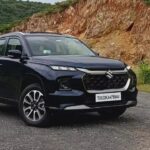The automotive industry is undergoing a significant transformation, with an increasing focus on sustainability and environmental consciousness. Among the leaders in this movement is the Hyundai Ioniq, a vehicle that embodies efficiency and eco-friendliness. This article delves into the various features of the Hyundai Ioniq, showcasing how it maximizes your drive while minimizing your carbon footprint.
Introduction to the Hyundai Ioniq
The Hyundai Ioniq is a compact car that stands out for its efficiency and eco-friendly technology. Available in multiple versions, including Hybrid, Plug-in Hybrid, and Electric, the Ioniq provides versatility for different driving needs. Its design is not only aesthetically pleasing but also functional, promoting aerodynamic efficiency to enhance performance.
Overview of Ioniq Models
- Ioniq Hybrid: Combines a gasoline engine with an electric motor for improved fuel efficiency.
- Ioniq Plug-in Hybrid: Offers the option to drive on electric power alone for short distances, while still having a gasoline engine for longer trips.
- Ioniq Electric: A fully electric vehicle with zero tailpipe emissions, designed for eco-conscious drivers.
Unmatched Efficiency in Driving
The Hyundai Ioniq is engineered with efficiency in mind. It features advanced technologies that contribute to its remarkable fuel economy and reduced emissions.
Hyundai Ioniq Fuel Efficiency Ratings
| Model | Fuel Economy (MPG) | Electric Range (miles) |
|---|---|---|
| Ioniq Hybrid | 58 city / 60 highway | N/A |
| Ioniq Plug-in Hybrid | 55 city / 53 highway | 29 (electric only) |
| Ioniq Electric | N/A | 170 |
Innovative Powertrain Technologies
The Ioniq’s efficiency stems from its innovative powertrain technologies:
- Regenerative Braking: Captures energy typically lost during braking and uses it to recharge the battery.
- Smart Driving Modes: Offers various driving modes (Eco, Normal, and Sport) that adapt to your driving style and needs.
- Efficient Aerodynamics: The sleek design minimizes drag, enhancing fuel efficiency and overall performance.
Eco-Friendly Features
The Hyundai Ioniq is not only efficient but also incorporates features that promote sustainability.
Sustainable Materials and Construction
- Recycled Materials: The Ioniq uses eco-friendly materials in its interior design, including recycled plastics and bio-based materials.
- Lightweight Design: A lighter vehicle requires less energy to operate, contributing to lower emissions and improved fuel efficiency.
Advanced Eco Technologies
Hyundai has integrated several technologies into the Ioniq that enhance its eco-friendly profile:
- Eco Driving Assistant: Provides real-time feedback on driving habits to encourage eco-friendly driving.
- Smart Cruise Control: Maintains a safe distance from the vehicle ahead, optimizing fuel efficiency during highway driving.
- Vehicle-to-Load (V2L) Technology: This feature allows you to use the car’s battery to power other devices, reducing reliance on fossil fuels.
Real-World Applications of the Ioniq
The benefits of the Hyundai Ioniq extend beyond its specifications. Here are some practical examples of how drivers can maximize their experience:
Daily Commuting
For daily commuters, the Ioniq’s hybrid model provides an exceptional balance of performance and efficiency. With its high MPG ratings, drivers can save significantly on fuel costs while contributing to a healthier environment.
Long-Distance Travel
For longer trips, the Ioniq Plug-in Hybrid offers the flexibility of driving on electric power for short distances and utilizing the gasoline engine for extended travels. This versatility makes it an ideal choice for families and road trippers.
Urban Living
In urban settings, the Ioniq Electric shines with its zero-emission operation. City dwellers can enjoy the benefits of driving without contributing to air pollution, and many urban areas offer incentives for electric vehicle owners, such as tax credits and reduced parking fees.
Frequently Asked Questions (FAQ)
What is the range of the Hyundai Ioniq Electric?
The Hyundai Ioniq Electric offers an impressive range of up to 170 miles on a single charge, making it suitable for daily commutes and short trips without the need for frequent recharging.
How does the Ioniq Hybrid differ from the Ioniq Plug-in Hybrid?
The main difference lies in the battery capacity and charging capabilities. The Ioniq Hybrid uses a smaller battery that charges while driving but cannot be plugged in, whereas the Ioniq Plug-in Hybrid features a larger battery that allows for electric-only driving for up to 29 miles before switching to hybrid mode.
Why is the Hyundai Ioniq considered eco-friendly?
The Hyundai Ioniq is considered eco-friendly due to its low emissions, use of sustainable materials, and advanced technologies designed to enhance fuel efficiency and reduce energy consumption. Furthermore, the fully electric model produces zero tailpipe emissions, contributing to a cleaner environment.
What are the charging options for the Ioniq Electric?
The Ioniq Electric can be charged through various options:
- Home Charging: Using a standard 120V outlet or a more efficient 240V Level 2 charger.
- Public Charging Stations: Access to a network of public charging stations, including fast chargers that can recharge the battery significantly quicker.
Conclusion
In summary, the Hyundai Ioniq stands out as a remarkable vehicle that successfully combines efficiency, eco-friendliness, and advanced technology. Whether you choose the hybrid, plug-in hybrid, or fully electric model, you benefit from unparalleled fuel economy, innovative design, and a commitment to sustainability. As we move towards a greener future, the Ioniq is not just a car; it is a statement about responsible driving and environmental stewardship.
By embracing the features and capabilities of the Hyundai Ioniq, you can truly maximize your drive while contributing to a more sustainable world. With its unmatched efficiency and eco-friendly features, the Ioniq is indeed paving the way for the future of driving.

